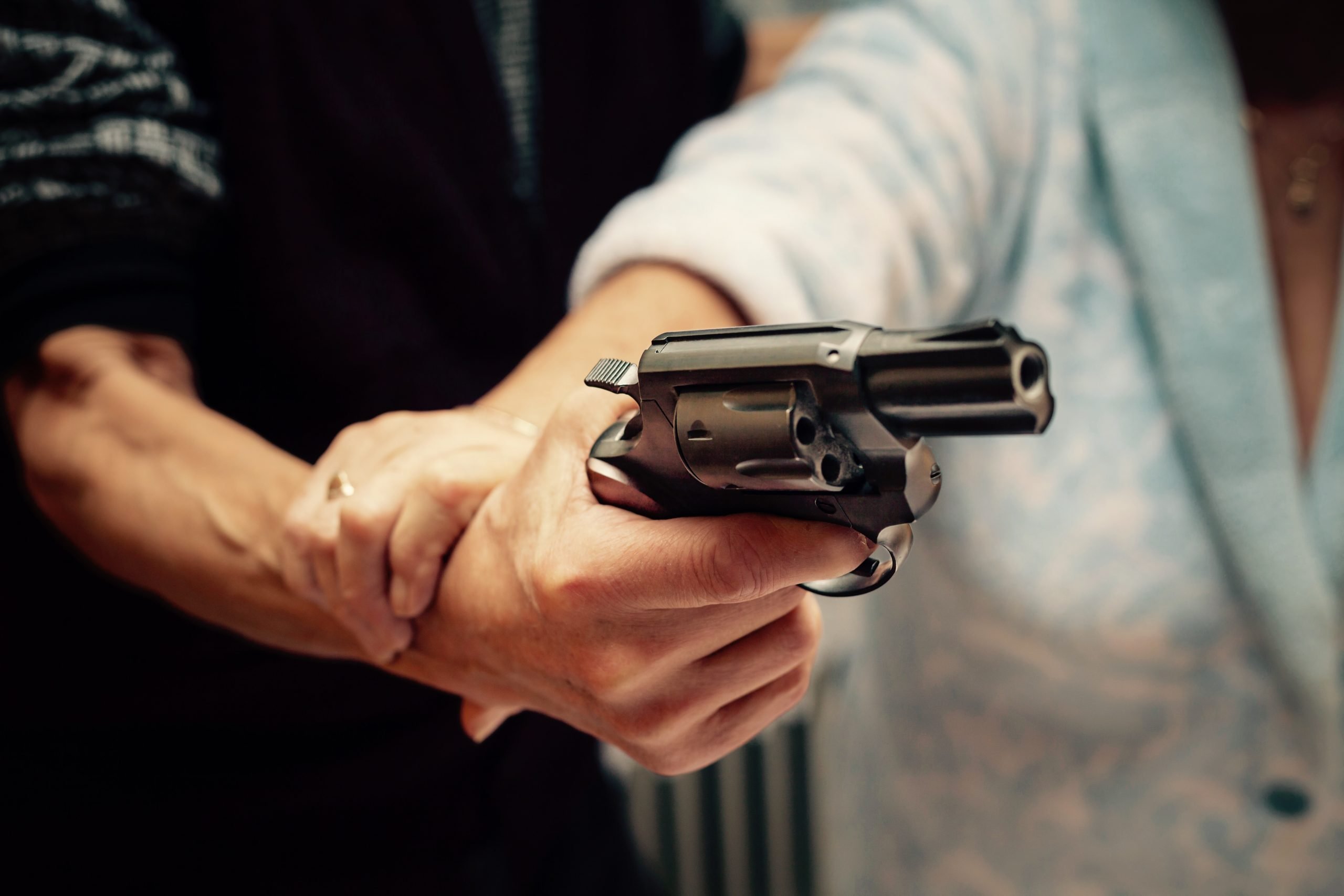Despite the political gridlock that often stalls efforts to pass gun legislation, an increasing number of states have enacted laws this year to address domestic violence and guns. Earlier this month, Rhode Island became the eighth state this year to enact legislation intended to protect women from abusers who might have access to firearms.
On October 4, Governor Gina Raimondo signed the Protect Rhode Island Families Act, which requires abusers to surrender their firearms to police within 24 hours of a domestic-violence conviction. The law took effect immediately.
Federal law prohibits people convicted of misdemeanor domestic violence and anyone subject to a permanent order of protection from owning a firearm. Enforcement of these laws, however, is left up to state and local authorities, and is often lax or nonexistent. One major loophole: federal law doesn’t provide a procedure for confiscating guns that abusers already own, so states must craft their own laws to fill those holes.
Gaps in the federal statute also leave entire categories of domestic-violence victims vulnerable: The “boyfriend loophole” excludes from gun prohibition current or former romantic partners who don’t live together or have a child in common. And the abuser gun ban also kicks in with permanent restraining orders, despite evidence that temporary orders of protection can escalate the behavior of batterers who fear they are losing control of their victims.
Here are the seven other states that passed gun laws related to domestic abuse this year, and a description of what these new statutes do:
- Washington became the first state to enact a law requiring law enforcement to notify victims of domestic violence when their abuser fails a gun background check.
- Louisiana added “dating partners” to the categories of abusers banned from owning guns. Before the law was passed, someone arrested for domestic abuse or served with an order of protection in Louisiana only qualified for a gun ban if that person and the victim had a child in common, or were married or living together.
- North Dakota’s Republican governor signed a law authorizing the arrest of abusers who don’t surrender their guns. The state also now requires courts to forward protection-order information to FBI databases and local police.
- Utah banned the subjects of permanent-protection orders and anyone convicted of misdemeanor domestic assault from acquiring guns.
- New Jersey’s Republican governor signed a law similar to Utah’s, except that it also includes an additional provision ordering and establishing a procedure for the surrender of guns already in the abusers’ possession.
- Tennessee also established a procedure for the surrender of guns in the possession of convicted abusers.
- Maryland now prohibits gun possession for people who receive probation for second-degree domestic assault.
Nine more states — Georgia, Kansas, Massachusetts, New Jersey, New York, Ohio, Pennsylvania, Tennessee, and Vermont — are also considering bills that would beef up domestic-violence statutes, though none are expected to pass anytime soon, according to the Law Center to Prevent Gun Violence.
All told, 27 states have adopted laws that take steps to keep guns from domestic abusers. According to the Law Center, 23 states have not passed any such laws.

